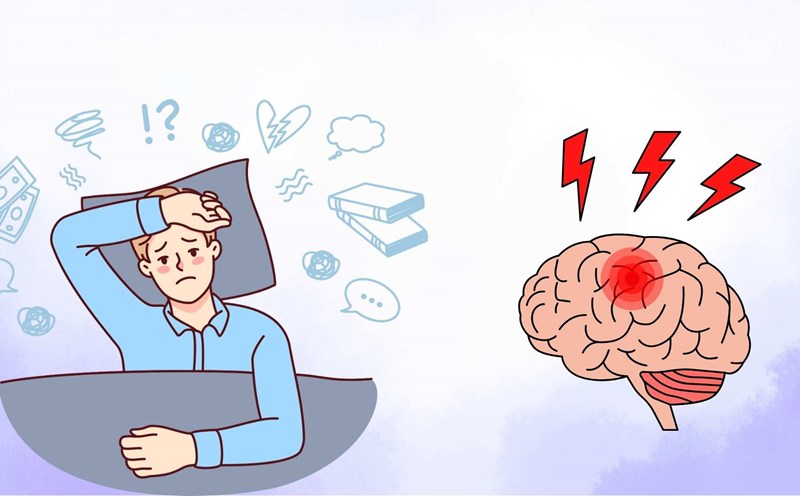Sleep accounts for one-third of each person's life, playing an important role in recovering physical and mental health and maintaining overall health. However, some seemingly harmless habits silently reduce sleep quality, harm health and shorten life expectancy.
Research published in 2021 in the medical journal JAMA shows that both prolonged lack of sleep and excessive sleep increase the risk of death. The ideal recommended sleep duration is about 7 hours per night.
Late sleeps
According to Oxford University (UK), often staying up late after a reasonable rest period will negatively affect your health, even if you try to catch up the next morning. Late sleep increases the risk of cardiovascular disease, coronary artery disease, and blood pressure disorders. On the contrary, the habit of sleeping early - waking up early helps the body start a new day alert, full of energy and balance the biological clock.
Snack and drink alcohol before bed
Eating a snack in the evening causes the digestive system to overwork, leading to difficulty sleeping, increasing the risk of gastroesophageal reflux and long-term metabolic disorders. Drinking alcohol before bed is also harmful: although it can create an initial feeling of sleepiness, alcohol stimulates the brain, disrupts the deep sleep cycle, making the body tired and less alert the next day.
Sleeping too little or too much
Sleeping less makes the body tired, reduce concentration and weaken the immune system. On the contrary, sleeping too much can easily cause sluggishness, muscle pain, and even lead to water retention and swelling. Many studies have confirmed that both lack of sleep and sleep deprivation are associated with a high risk of cardiovascular disease, type 2 diabetes, depression and premature mortality.
Smoking before bed
Nicotine in cigarettes is a neurostimulating substance, which can reduce the average sleep duration by 5 - 8 minutes per night. Smoking also aggravates sleep apnea, disrupts sleep and reduces the body's ability to recover.
Experts recommend that to get quality sleep, it is necessary to maintain a fixed sleep-wake time every day, avoid using stimulants in the evening, create a quiet sleeping space and suitable light. Getting enough and proper sleep not only helps recover physically and mentally but also contributes to protecting the heart, brain and prolonging life.











